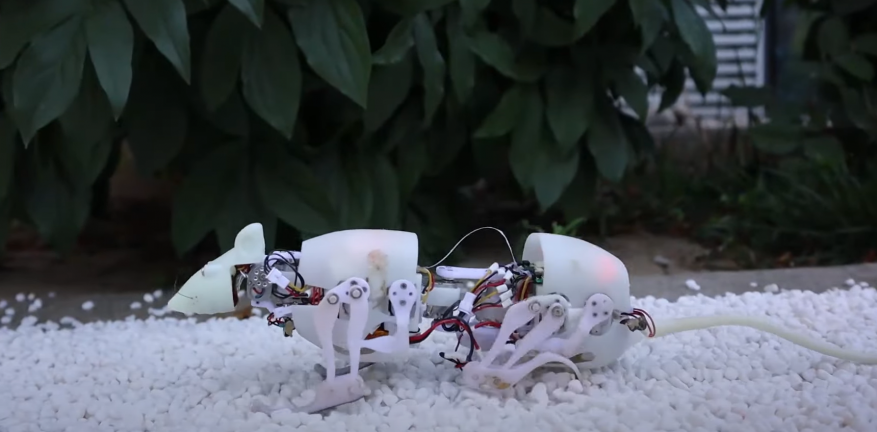MI weekly selection #467

Data from Mars rover suggest presence of rare rock
Scientists who studied images collected by a Mars rover say the planet may contain ignimbrite, a rare rock created by powerful volcanic eruptions. The presence of ignimbrite, also found on Earth, would suggest eruptions on Mars were more violent than thought.
Robotic rat can handle dangerous tasks
Researchers have created a robotic rat that eventually could carry supplies and messages during emergencies or probe areas too small for human rescuers. The robot is 19 cm long, has a battery life of 30 minutes and can be controlled from a smartphone or computer.
Helium-3 seeping from reservoir in Earth’s core
Helium-3, a rare isotope of helium that has one neutron instead of two, is oozing from Earth’s core, supporting the likelihood that Earth formed within a solar nebula. The variant is “a wonder of nature, and a clue for the history of the Earth, that there’s still a significant amount of this isotope in the interior of the Earth,” says Peter Olson, a geophysicist and lead author of the study.
Correlation found between landslides, glaciers melting
The relationship between glaciers and landslides is complex, with the study of one 2019 landslide showing the geological event caused a neighbouring glacier to immediately grow in size and debris from the slide helped stabilize the melting ice. Unfortunately, the proximity of glaciers to landslides can often worsen the threat to neighbouring communities due to increased fluidity of the displaced earth and rock.
Monkeys’ brain waves change during anesthesia
The general anesthetic propofol appears to mute high-frequency beta waves in the brain and increase the activity of low-frequency delta waves. Delta waves in the cortex traveled in one direction when macaque monkeys were anesthetized with propofol, pushing aside beta waves, and brain wave patterns returned to normal after the monkeys regained consciousness, findings that may help scientists understand how the human body reacts to anesthesia.